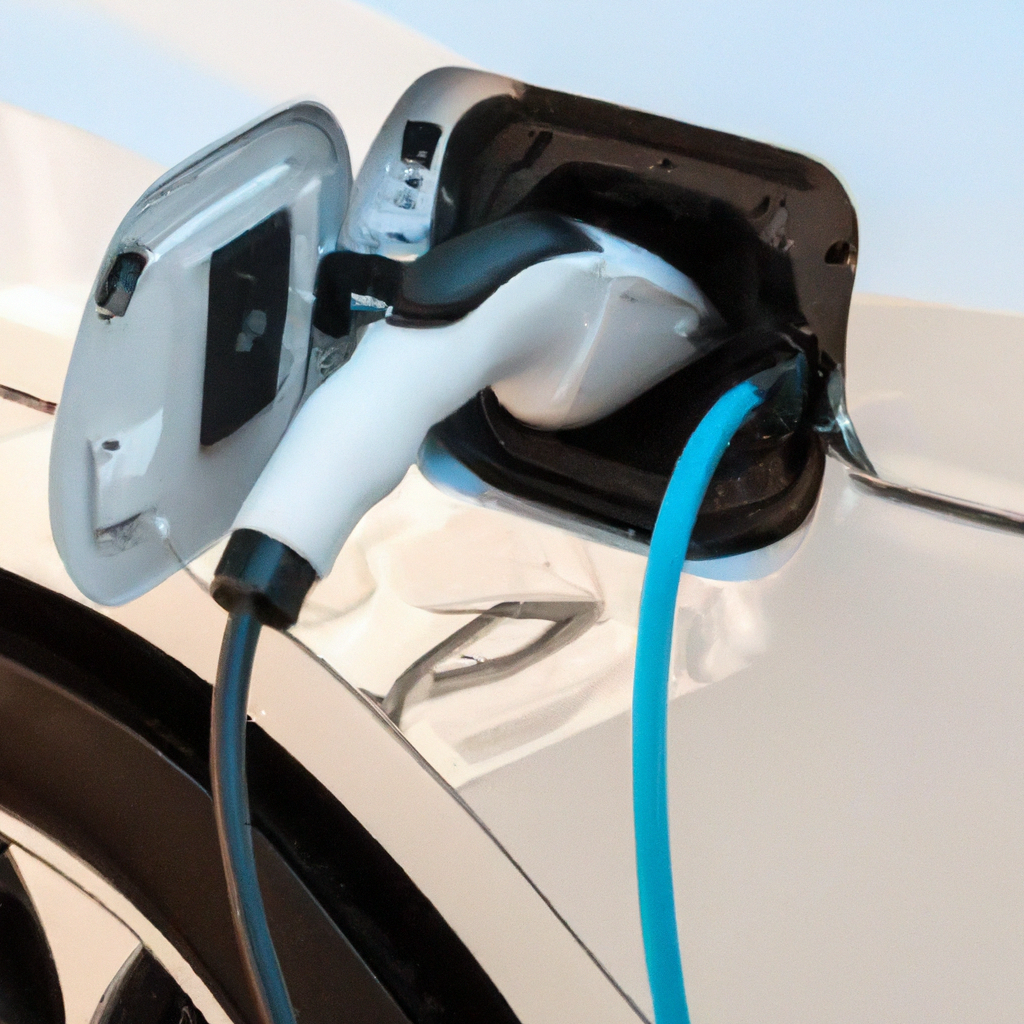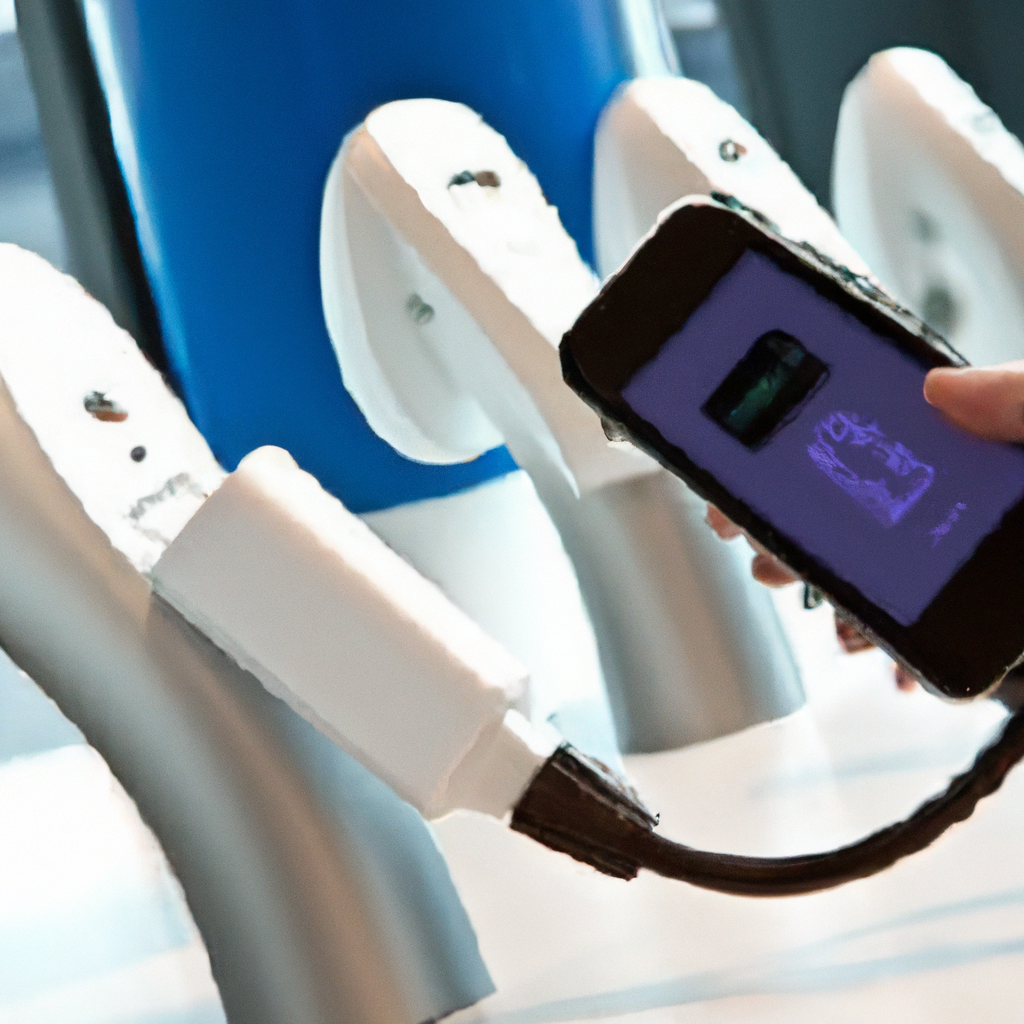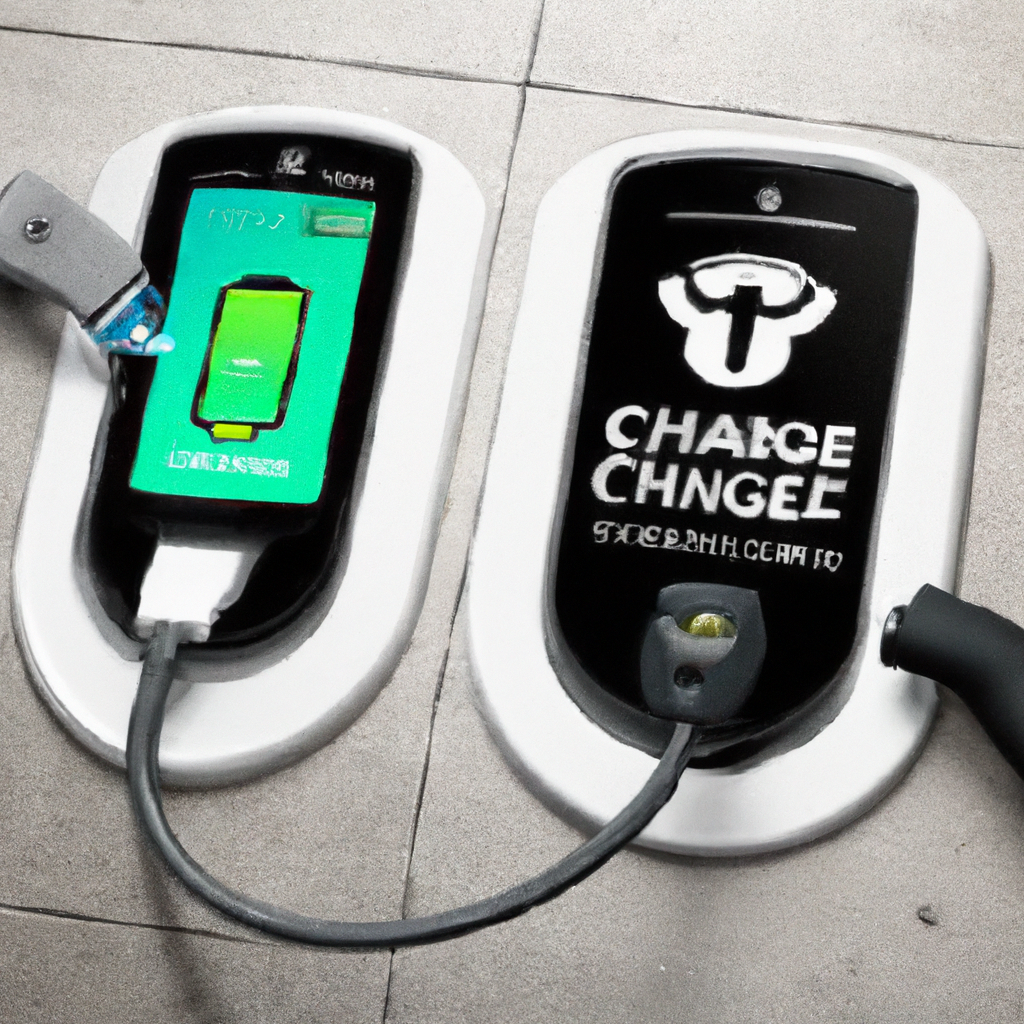
Are you considering making the switch to an electric vehicle (EV)? If so, you may be wondering about the practicality and convenience of charging at home. Well, we’ve got great news for you! Home EV charging stations offer both convenience and cost savings, making them an essential addition to any EV owner’s arsenal. Not only do they eliminate the need to rely solely on public charging infrastructure, but they also save you time, money, and the hassle of searching for a charging station. In this article, we’ll explore the many benefits of home EV charging stations and why they’re a worthwhile investment for every EV owner. So, buckle up and get ready to discover the incredible convenience and cost savings that come with installing a home EV charging station.
Benefits of Home EV Charging Stations
Convenience of Charging at Home
Having a home EV charging station is incredibly convenient. Instead of having to find a public charging station and wait in line, you can simply plug in your electric vehicle right in your own garage or driveway. No more worrying about range anxiety or running out of battery, as you can always start each day with a full charge. Plus, charging at home allows you to take advantage of time that you would not normally be using your car, such as overnight or during work hours.
Cost Savings
One of the biggest advantages of home EV charging stations is the cost savings they offer. Charging your electric vehicle at home is much cheaper than relying on gasoline. The cost of electricity is much lower per unit of energy compared to gasoline, especially when charging during off-peak hours. Additionally, with the ability to shop around and choose different electricity providers, you can find the best rates and potentially save even more money.
Faster Charging Times
Home EV charging stations typically offer faster charging times compared to public charging stations. Level 2 charging stations, for example, can fully charge your electric vehicle in just a few hours, depending on the battery size. This means you can get on the road again more quickly and efficiently. Fast charging at home allows you to maximize your time and avoid unnecessary delays in your daily routine.
Easier Maintenance
With a home EV charging station, you can ensure that your electric vehicle remains in optimal condition. Regularly charging your EV at home helps to maintain the battery’s health and longevity. Unlike relying solely on public charging stations, which may not always provide the same level of charging consistency, your home charging station gives you much more control over the charging process. This can help prolong the life of your vehicle’s battery and save you from costly repairs down the road.
Increased Resale Value
Investing in a home EV charging station can also add value to your property. As electric vehicles become more popular, having a dedicated charging station at home can be a major selling point for potential buyers. The convenience and cost savings associated with home charging can greatly enhance the overall appeal of your property. So not only will you benefit from using the charging station while you own the property, but you can also potentially recoup some of the installation costs when it’s time to sell.
Ability to Monitor Charging
Many home EV charging stations come with smart features that allow you to monitor and control your vehicle’s charging remotely. You can use smartphone apps or online platforms to track charging status, set charging schedules, and even receive notifications when your vehicle is fully charged or if there are any issues with the charging process. This level of control and monitoring gives you peace of mind and allows you to better manage your charging needs.
Flexibility in Charger Placement
With a home EV charging station, you have the flexibility to choose where you want to install it. Whether you prefer a wall-mounted charger in your garage or a standalone pedestal in your driveway, the choice is yours. This flexibility in charger placement ensures that you can position the charging station in a way that is most convenient for your daily routine and accessibility.
Environmental Benefits
By charging your electric vehicle at home, you are reducing your carbon footprint and helping to protect the environment. Electric vehicles produce zero tailpipe emissions, which means that by driving an electric vehicle and charging at home, you are contributing to cleaner air and a healthier planet. By transitioning to electric mobility, you are actively participating in the movement towards more sustainable transportation solutions.
Reduced Reliance on Public Charging
Relying solely on public charging stations for all your charging needs can be inconvenient and time-consuming. Public charging stations may often be occupied or have limited availability, leading to delays in your charging routine. By having a home EV charging station, you can significantly reduce your reliance on public charging infrastructure and have the peace of mind that your vehicle is always ready to go.
Access to Off-Peak Charging Rates
Many electricity providers offer time-of-use rates, which means that electricity is cheaper during off-peak hours. With a home EV charging station, you can take advantage of these off-peak rates and save even more money on your charging costs. By scheduling your charging sessions to occur during these hours, you can maximize your cost savings and further optimize your charging routine.
Types of Home EV Charging Stations
Level 1 Charging
Level 1 charging is the simplest and most basic form of home EV charging. It involves using a standard household outlet (120 volts) to charge your electric vehicle. While level 1 charging is the slowest option, it is still useful for those who have limited charging needs or shorter daily commutes. It is also the most accessible charging option, as it does not require any additional equipment or installations.
Level 2 Charging
Level 2 charging is the most common and recommended charging option for home EV charging stations. It uses a 240-volt electrical supply and requires a dedicated circuit and charging station. Level 2 charging offers faster charging times compared to level 1, typically providing anywhere from 10 to 60 miles of range per hour of charging, depending on the vehicle and charger specifications.
DC Fast Charging
DC Fast Charging, also known as level 3 charging, is a high-powered charging option that can provide a significant amount of range in a short amount of time. However, DC Fast Charging is typically not available for home installations due to its high-power requirements and specialized equipment. It is commonly found at public charging stations and is used for quick charging while on the go.
Smart Charging Stations
Smart charging stations are equipped with advanced features and connectivity options that allow for greater control and optimization of the charging process. These stations often include smartphone apps or online platforms that enable users to monitor charging status, schedule charging sessions, and even integrate with smart home systems. Smart charging stations offer convenience and flexibility, making them an increasingly popular choice for home EV charging.
Wireless Charging Stations
Wireless charging stations, also known as inductive charging, eliminate the need for physical charging cables. Instead, power is transferred to the electric vehicle through a wireless charging pad or ground unit. While wireless charging technology is still relatively new and not as widely available, it offers the convenience of simply parking over the charging pad and automatically initiating the charging process.

Installation and Setup
Assessing Electrical Capacity
Before installing a home EV charging station, it is important to assess your home’s electrical capacity. Different charging stations have different power requirements, so it’s crucial to ensure that your electrical system can handle the additional load. You may need to consult with a licensed electrician to determine if any upgrades or modifications are necessary.
Choosing the Right Charging Station
Choosing the right charging station for your needs is essential. Consider factors such as charging speed, connectivity options, and additional features when making your decision. Take into account your current electric vehicle and any future upgrades or additional EVs you may have in the future.
Professional Installation
Installing a home EV charging station typically requires the expertise of a professional electrician. They will ensure that the charging station is installed correctly, safely, and up to code. It is important not to attempt DIY installations unless you have the proper electrical knowledge and experience.
Permitting Requirements
Depending on your location, you may need to obtain permits or approvals before installing a home EV charging station. Check with your local authorities or homeowner’s association to determine if any permits or regulations apply to your installation.
Safety Precautions
Safety should be a top priority when installing a home EV charging station. Ensure that all electrical connections are properly insulated and protected. Follow the manufacturer’s instructions for installation and adhere to all safety guidelines. If you are unsure about any aspect of the installation, consult with a professional electrician.
Setting Up Payment Options
Some home EV charging stations allow for payment options, such as pay-per-use or subscription-based plans. Set up the preferred payment method or plan according to your needs. This may involve registering with a charging network or setting up a separate billing account.
Connecting to a Smart Home System
If you have a smart home system, you may be able to integrate your home EV charging station into the system. This allows for additional control and monitoring capabilities, such as voice commands or automated charging schedules. Check if your charging station is compatible with your smart home system and follow the instructions for setup.
Comparing Home Charging Costs
Electricity Cost vs. Gasoline Cost
Charging your electric vehicle at home is generally much cheaper than relying on gasoline. The cost of electricity is typically lower per unit of energy compared to gasoline. This cost savings can add up significantly over time and contribute to lower overall transportation expenses.
Charging Efficiency
Home EV charging stations are designed to be highly efficient and maximize the amount of energy transferred to your electric vehicle. This means that the charging process is optimized and minimizes energy losses. Comparatively, public charging stations may not have the same level of charging efficiency and may result in higher energy consumption.
Time-of-Use Rates and Cost Optimization
Many electricity providers offer time-of-use rates, which means that electricity is cheaper during off-peak hours. By charging your electric vehicle at home during these off-peak hours, you can take advantage of reduced electricity rates and further optimize your charging costs.
Calculating Return on Investment
Investing in a home EV charging station may require an upfront cost for the charging station and installation. However, calculating the return on investment can help determine the long-term cost savings. Consider factors such as electricity costs, gasoline savings, and any incentives or rebates available to estimate the payback period.
Incentives and Rebates
There may be various incentives and rebates available to help offset the cost of installing a home EV charging station. These incentives can come from government programs, local utilities, or even manufacturers. Research the available incentives and rebates in your area to explore potential cost savings.
Budgeting for Charging Infrastructure
When considering a home EV charging station, it is important to budget not only for the initial installation cost but also for any ongoing maintenance or upgrades that may be required. Factor in any additional costs such as electrical upgrades, permits, and potential fees associated with specific charging networks.

Considerations for EV Owners
Vehicle Compatibility
Not all electric vehicles are compatible with all types of charging stations. Before investing in a home EV charging station, ensure that it is compatible with your electric vehicle’s charging requirements. Check the vehicle’s specifications or consult with the manufacturer to determine the recommended charging options.
Charging Connector Types
Electric vehicles may utilize different charging connector types, such as Type 1 (J1772) or Type 2 (Mennekes). Ensure that the charging station you choose has the appropriate connector type for your electric vehicle. Adapters may be available for certain charging stations to accommodate different connector types.
Garage Space and Accessibility
Consider the available space in your garage and how it will accommodate the installation of a home EV charging station. Ensure that there is enough clearance, proper ventilation, and access to electrical panels or breaker boxes. A clean and organized charging space will contribute to a more efficient and safe charging experience.
Future Vehicle Upgrades
If you plan on upgrading to a different electric vehicle in the future, consider the charging requirements of the potential new vehicle. Opting for a versatile charging station that can accommodate different vehicles and their charging specifications can save you from having to replace the charging station when you upgrade.
Integration with Solar Panels
If you have solar panels installed on your property, consider integrating your home EV charging station with your solar system. By using solar energy to power your electric vehicle, you can further reduce your carbon footprint and charging costs. This integration may require additional equipment or modifications, so consult with a solar professional for guidance.
Evaluating Charging Speed Requirements
Consider your daily commute and charging needs when determining the charging speed requirements for your home EV charging station. If you have a short daily commute and regular access to charging, a level 2 charging station may be sufficient. If you frequently travel longer distances or require quick charging, you may want to consider a higher-powered charging option.
Smart Charging Features
Take advantage of the smart features available in many home EV charging stations. These features allow you to remotely monitor, control, and optimize your charging sessions. Set up charging schedules, receive notifications, and integrate with other smart home devices for a seamless and personalized charging experience.
Maintenance and Troubleshooting
Regular Maintenance Practices
While home EV charging stations require minimal maintenance, it is still important to perform regular checks and inspections. Ensure that all electrical connections are secure and in good condition. Clean the charging station and remove any debris or obstructions. Follow the manufacturer’s guidelines for maintenance and refer to the user manual for specific instructions.
Understanding Error Codes
If your home EV charging station displays error codes, it is important to understand their meaning and potential troubleshooting steps. Consult the user manual or contact customer support for assistance in interpreting the error codes. Certain error codes may indicate issues with the charging station, while others may be related to your electric vehicle.
Troubleshooting Common Issues
In the event of a common issue with your home EV charging station, there are some troubleshooting steps you can take before contacting customer support. These may include checking the power supply, ensuring all connections are secure, and resetting the charging station if necessary. Refer to the user manual or online resources for specific troubleshooting tips.
Contacting Customer Support
If you encounter a problem with your home EV charging station that cannot be resolved through troubleshooting, it may be necessary to contact the manufacturer’s customer support. They can provide you with further guidance, assist in diagnosing the issue, and arrange for any necessary repairs or replacement parts.
Upgrading Charging Station Firmware
Manufacturers frequently release firmware updates for home EV charging stations to improve performance and address any bugs or issues. It is important to regularly check for and install any available firmware updates to ensure the optimal function of your charging station. Follow the manufacturer’s instructions for upgrading the firmware and be mindful of any prerequisites or precautions.

Safety and Code Compliance
Safety Standards for Charging Stations
Home EV charging stations must adhere to safety standards to ensure the protection of users and properties. These safety standards may cover aspects such as electrical safety, fire safety, and protection against overcharging. When purchasing a home EV charging station, ensure that it complies with relevant safety standards and certifications.
Grounding and Electrical Safety
Proper grounding is essential for the safe operation of home EV charging stations. Ensure that the charging station is properly grounded according to manufacturer guidelines and local electrical codes. Regularly inspect the charging station for any signs of damage or wear that could affect the electrical safety.
Fire Safety Precautions
Home EV charging stations are designed with fire safety precautions in mind. They often include features such as ground fault circuit interrupters (GFCIs) and circuit breakers to protect against electrical faults and overcurrent situations. Follow the manufacturer’s instructions for fire safety guidelines and precautions.
Protecting Against Overcharging
Home EV charging stations are equipped with built-in safeguards to prevent overcharging and protect the vehicle’s battery. These safeguards may include advanced charging profiles, communication protocols with the vehicle, and monitoring systems. Ensure that your charging station has these protective features to prevent any potential damage to the battery.
Complying with Building Codes
When installing a home EV charging station, it is important to comply with local building codes and regulations. These codes may include requirements for electrical installations, grounding, and structural considerations. Failure to comply with building codes can result in safety hazards, legal issues, or potential fines.
Safety Tips for Home EV Charging
Follow these safety tips when using a home EV charging station:
- Inspect the charging station and cords for any signs of damage before each use.
- Ensure that the charging station and cords are kept away from water and other liquids.
- Never attempt to modify or tamper with the charging station or its components.
- Do not use extension cords or adapters unless specifically recommended by the manufacturer.
- If you notice any unusual behavior or issues with the charging station, discontinue use and contact customer support for assistance.
Advancements in Home EV Charging
Wireless Charging Technology
Wireless charging technology is an exciting advancement in home EV charging. It eliminates the need for physical cables and instead uses electromagnetic fields to transfer power from the charging pad to the vehicle. While still in its early stages of development, wireless charging technology offers the potential for even greater convenience and ease of use.
Longer Range and Faster Charging
As electric vehicle technology continues to advance, there is a trend towards longer range and faster charging capabilities. The increased range allows for longer trips without the need for charging, while faster charging times reduce the overall downtime for charging. These advancements make electric vehicles even more practical and comparable to traditional gasoline-powered vehicles.
Vehicle-to-Home (V2H) Integration
Vehicle-to-Home (V2H) integration allows electric vehicles to serve as a power source for the home during emergencies or power outages. By connecting the vehicle to the home’s electrical system, the vehicle’s battery can supply power to the home, powering essential appliances or even the entire home. V2H integration offers increased resilience and energy backup options.
Bidirectional Charging
Bidirectional charging, also known as vehicle-to-grid (V2G) integration, allows electric vehicles to not only receive power but also supply power back to the grid. With bidirectional charging, electric vehicles can help stabilize the electricity grid by providing stored energy during peak demand periods. This technology has the potential to transform electric vehicles into mobile energy storage devices.
Integration with Energy Management Systems
Home EV charging stations can integrate with energy management systems to optimize energy use and reduce overall electricity costs. By coordinating the charging process with other energy-consuming devices in the home, such as appliances or heating systems, energy can be distributed efficiently and intelligently. This integration maximizes energy savings and minimizes the impact on the grid.
Smart Grid Integration
The integration of home EV charging stations with smart grids allows for better coordination and management of electricity distribution. Smart grids can dynamically adjust electricity flows and pricing based on real-time demand and supply factors. This integration ensures that electric vehicle charging is optimized for both cost savings and grid stability.

Public vs. Home Charging
Pros and Cons of Public Charging
Public charging stations offer convenience and accessibility, especially when you are away from home or traveling long distances. They provide an opportunity to charge your electric vehicle when you do not have access to your home charging station. However, public charging stations may have limited availability, require waiting in line, and may not offer the same level of charging speed or cost savings as home charging.
Accessing Public Charging Infrastructure
Public charging infrastructure can be accessed through various charging networks or individual charging station providers. These charging stations are typically located in public areas such as parking lots, shopping centers, or along highways. Payment methods and access to specific charging networks may vary, so it’s important to familiarize yourself with the options available in your area.
Cost Comparison
While public charging can be convenient, it is generally more expensive compared to home charging. Public charging stations often charge higher rates per kilowatt-hour of electricity compared to what you would pay at home. Additionally, some public charging stations impose additional fees or time limits, further impacting the cost of charging.
Reliability and Availability
Reliability and availability of public charging stations can vary depending on your location and the charging network. Some areas may have a robust public charging infrastructure, while others may have limited coverage. It is important to plan your charging needs accordingly and anticipate potential delays or unavailability when relying on public charging stations.
Factors Influencing Charging Decisions
When deciding between public charging and home charging, consider factors such as your daily charging needs, accessibility of public charging stations, and the cost savings associated with home charging. Evaluate your driving habits and charging requirements to determine the optimal balance between public and home charging that suits your lifestyle.
Conclusion
Convenience and Cost Savings
Home EV charging stations offer unparalleled convenience and cost savings for electric vehicle owners. The ability to charge at home eliminates the need to rely on public charging infrastructure, saves time, and ensures that your vehicle is always ready to go. By utilizing off-peak charging rates, optimizing charging costs, and taking advantage of incentives and rebates, you can further maximize your cost savings.
Transitioning to Electric Mobility
Investing in a home EV charging station is not only a practical choice but also a step towards embracing electric mobility and sustainable transportation solutions. By driving an electric vehicle and charging at home, you contribute to reducing carbon emissions, improving air quality, and minimizing reliance on fossil fuels.
Sustainable Transportation Solutions
Home EV charging stations play a crucial role in the transition to sustainable transportation solutions. By adopting electric vehicles and charging at home, we can collectively reduce greenhouse gas emissions, combat climate change, and create a more sustainable future.
Making the Switch to Home Charging
With the many benefits and advancements in home EV charging, now is the perfect time to consider making the switch. Take into account your charging needs, vehicle compatibility, and budgeting considerations to make an informed decision. By installing a home EV charging station, you can enjoy the convenience, cost savings, and environmental benefits that come with owning an electric vehicle.

RELATED POSTS
View all


